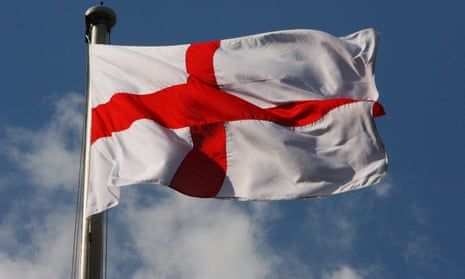For me, it is the landscape, history, culture, humour and literature of England that most inspires. I was born a child of the Fens, in the university city of Cambridge; I spent much of my childhood exploring the wilds of Exmoor in Devon; and now I have the profound privilege of representing the Potteries – “that rugged pot-making spot of earth” – of North Staffordshire.
I adore the industrial landscapes of Stoke-on-Trent Potbanks, Oldham mills and Liverpool docks; the deep England of the South Downs and the North Downs; the wild England of peaks and lakes; the historic England of country houses, minsters and castles; the coastal England of Whitby, and Durdle Door and Margate.
But the unfortunate truth is that in recent years, the Labour party has not been nearly explicit enough about its love of the country. And this is at a time when more and more people are consciously identifying as English. In a recent poll, 71% had English either as their preferred or shared identity. As former Labour MP John Denham has rightly noted: “The days when England didn’t need to be English because it was good enough to be British are gone.”
So we in the Labour party need to redouble our cultural affiliation with English identity. My modest proposals are a bank holiday for St George’s Day and a referendum on an English parliament, so that England can have a similar political sensibility to Wales and Scotland.
To begin with, this means we have to move on from thinking that Englishness denotes ethnicity. In the 1980s, black Labour Tottenham MP Bernie Grant declared himself “British” because “it includes other oppressed peoples like the Welsh or the Scots. It would stick in my throat to call myself English.” Yet by 2006 the Guardian’s Gary Younge was able to write about the growing accommodation between blackness and Englishness. “The apparently seamless link between Englishness and whiteness has long since broken … From pop to politics, cuisine to music, fashion to business, the black experience is now intimately interwoven into the fabric of English daily life.”
Sadly, we have only moved on a little – you do not have to attend too many Labour party meetings before encountering a discomfort about overt displays of patriotism. Of course, as far back as 1941, George Orwell wrote that England was “the only great country whose intellectuals are ashamed of their own nationality. In leftwing circles it is always felt there is something slightly disgraceful in being an Englishman and that it is a duty to snigger at every English institution, from horse racing to suet puddings.” He was right too: in no other progressive European tradition do you find a similar reluctance to fly the flag. President François Hollande gives election addresses daubed in the tricolour, while even modish Podemos rallies fizz with a patriotic determination.
All of which speaks to a contemporary Europe where the politics of national identity demand whole new levels of confidence when it comes to defending the national interest – as we found to our cost on both sides of the Tweed in 2015. Whether it is in Europe or the UK, voters expect you to fight their corner.
Worse still, such metropolitan squeamishness about English patriotism seems to speak to a widening culture gap between Labour and the communities it seeks to represent. True, this is a much deeper dislocation, fed by issues as diverse as our overly technocratic language, a dearth of working-class representation, and our record on immigration and globalisation in government. However, there is also a clear sense – captured perfectly by Gordon Brown’s response to Gillian Duffy’s concerns about immigration in Rochdale, or Emily Thornberry’s infamous “image from Rochester” tweet (with its shock at the display of St George’s flags) – that we can neither emulate nor empathise with our voters’ national pride.
A clearer solution to our lop-sided post-devolution constitution can begin to heal this breach. When the West Lothian question returned after the Scottish independence referendum, we buried our heads. The tragedy was that nobody who campaigned in Scotland could fail to be shaped by the experience. It was to reconnect once more with the power and wonder of democracy – to see a nation debate every single aspect of its future, culture and identity.
Labour should campaign for an English constitutional referendum. After all, every progressive party needs hope, optimism and democratic confidence in order to thrive. Who knows, our campaign might even awaken England’s dormant radical tradition – a story of Chartists, Diggers, Levellers and a core belief of self-determination for the voiceless.
More important, it can help rescue the union. The unifying blocks of British identity – Protestantism, empire, heavy industry – have frayed. Only a new democratic settlement, grounded in distinctive Scottish, Welsh and English patriotism, now offers a way forward. And for the Labour party there is no other choice. We need to be much clearer about our love and affection for the signs and symbols of modern England. This was the genius of Orwell’s English socialism – to combine mission and motivation; the poetry of radicalism with the purpose of patriotism. “We must add to our heritage or lose it, we must grow greater or grow less, we must go forward or backward. I believe in England and I believe that we shall go forward.” The modern Labour party needs to believe in England. And it needs to start showing that it does, too.
